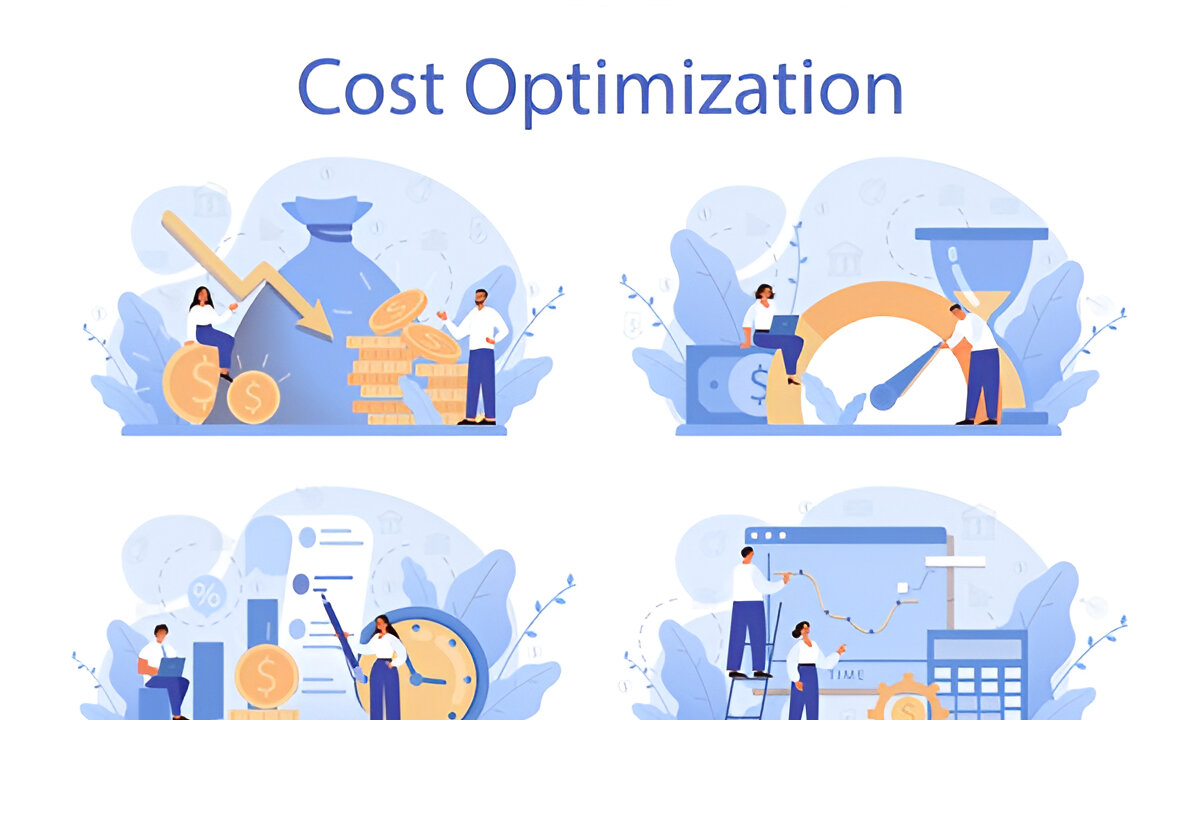The digital economy has grown exponentially in India, with e-commerce and online businesses becoming key drivers. However, as the digital canvas expands, so does the need for regulation and taxation.
Digital taxation has become a hot topic, especially with the rapid expansion of e-commerce platforms and online service providers.
The government increasingly focuses on ensuring digital businesses comply with India's tax system. This is part of a broader effort to create a fair and efficient tax framework that addresses the complexities of the digital economy.
But how exactly does digital taxation impact e-commerce and online businesses? What challenges do they face? And how can businesses navigate these new tax requirements?
This blog will explore the effects of digital taxation on e-commerce in India, including the challenges and opportunities that come with it.
What is Digital Taxation?

Digital taxation refers to taxing goods and services offered via digital platforms.
This includes e-commerce transactions, digital services, and online goods. As businesses shift to digital platforms, governments worldwide have had to adapt their tax policies to include digital transactions.
In India, digital taxation covers various aspects, including the Goods and Services Tax (GST) on online transactions, the taxation of foreign e-commerce companies, and the introduction of Tax Deducted at Source (TDS) on payments made through e-commerce platforms.
Digital taxation ensures that online businesses contribute to the national tax base, providing governments with the revenue they need to support public services. However, as the tax landscape becomes more complex, businesses must stay compliant to avoid penalties and disruptions to their operations.
Digital Taxation in India

India has made significant strides in adapting its tax framework to accommodate digital businesses. One of the most important steps has been implementing the Goods and Services Tax (GST), which has standardized the tax regime for all goods and services, including digital products and services.
Key Digital Tax Policies in India:
-
GST on Digital Transactions: Since the introduction of GST in 2017, digital businesses have been required to pay taxes on goods and services sold online. E-commerce businesses now collect GST on behalf of the government, which is then remitted to the authorities.
-
TDS on E-commerce Platforms: The Tax Deducted at Source (TDS) provision for e-commerce platforms was introduced under Section 194-O of the Income Tax Act. This mandates that e-commerce platforms like Amazon, Flipkart, and others deduct Tax on payments made to sellers operating on these platforms.
-
Foreign E-commerce Companies: Foreign companies operating in India are also subject to digital taxation under the Equalization Levy. This Tax ensures that global e-commerce giants such as Google, Facebook, and Amazon contribute to India’s tax revenue for their operations in the country.
The Role of GST in Digital Commerce
The introduction of GST has significantly impacted e-commerce businesses in India. Before GST, businesses had to manage multiple state and central taxes, creating confusion and inefficiencies.
With GST, businesses now follow a single tax system, simplifying the entire taxation process. However, for e-commerce platforms, the collection and remittance of GST can be complex, especially with cross-border transactions.
The Impact on E-commerce Businesses
Digital taxation has several implications for e-commerce businesses in India, ranging from compliance challenges to cost implications.
Understanding these impacts are crucial for companies that want to stay compliant while optimizing their operations.
1. Compliance Challenges

Compliance is one of the most significant challenges e-commerce businesses face due to digital taxation. Introducing GST and TDS provisions means e-commerce platforms must collect and remit taxes correctly. Additionally, businesses selling products across multiple states must comply with different tax rates, making it challenging to ensure compliance.
Key Compliance Challenges:
- GST Filing: E-commerce platforms must regularly file GST returns for each transaction, which requires accurate data tracking.
- TDS Deduction: Platforms must ensure that they deduct the correct amount of Tax from payments made to sellers.
- Cross-Border Transactions: E-commerce businesses dealing with international sellers or buyers must comply with Indian tax laws and international tax agreements.
2. Cost Implications

The implementation of digital taxation increases operational costs for e-commerce businesses. Compliance with tax laws often requires investing in technology and human resources to manage tax reporting and filing. For smaller businesses, this can put considerable strain on their finances.
Financial Impact:
-
Software and Automation Costs: Many e-commerce businesses invest in automated systems to handle tax collection and filing, which can be expensive.
-
Employee Training: Businesses must train employees to manage the new tax regulations, which increases operational costs.
-
Risk of Penalties: Failure to comply with digital taxation laws can result in hefty fines, further increasing businesses' financial burden.
3. International Sales and Cross-Border Taxation

For e-commerce businesses dealing with international customers, digital taxation introduces a range of complexities. These businesses must navigate the complexities of cross-border taxation, such as withholding taxes and compliance with local tax laws in different countries.
Cross-Border Taxation Challenges:
-
Withholding Taxes: E-commerce platforms must ensure that they deduct the correct amount of Tax on payments to foreign sellers.
-
Double Taxation: Businesses that operate internationally may face the risk of being taxed in both India and other countries, leading to double taxation.
4. Revenue Recognition and Tax Reporting

Digital taxation has made it more critical for e-commerce businesses to report their revenues and expenses accurately. With the introduction of GST and TDS provisions, companies must ensure that they properly record all sales transactions, which requires more robust accounting systems.
Reporting Challenges:
-
Real-Time Data: Businesses must maintain real-time records of all transactions, which requires sophisticated accounting systems.
-
Tax Documentation: E-commerce platforms must issue tax invoices and maintain records for audit purposes.
Impact on Online Service Providers
In addition to e-commerce businesses, digital taxation affects online service providers such as SaaS (Software as a Service) platforms, subscription services, and digital content creators.
- SaaS Providers: Software providers in India must comply with GST for digital services. For foreign SaaS providers, India’s Equalization Levy applies.
- Subscription Models: Digital subscription services, such as video streaming platforms, must collect GST on the services provided to Indian customers.
Online service providers face challenges similar to those e-commerce businesses face, particularly in compliance and revenue recognition. The digital tax regime requires service-based firms to update their billing systems to ensure they are charging and reporting the correct amount of Tax.
Challenges and Opportunities for E-commerce in India

1. Barriers to Growth
Digital taxation can hinder growth for small and medium-sized e-commerce businesses. The complexity of managing multiple taxes and ensuring compliance can overwhelm smaller businesses with limited resources.
- Increased Operational Complexity: Smaller businesses often lack the infrastructure to handle complex tax reporting.
- Cost of Compliance: For startups, the costs associated with digital taxation can divert resources from business development.
2. Opportunities for Growth
Despite these challenges, digital taxation also brings growth opportunities. By leveling the playing field between domestic and international businesses, India’s tax policies can foster a more equitable environment for local companies to compete.
Opportunities:
- Fair Competition: Indian businesses can compete more effectively with international e-commerce giants, as foreign companies now pay taxes in India.
- Structured Economy: A well-regulated digital economy provides stability, attracting more investments and boosting business growth.
Best Practices for E-commerce Businesses to Adapt to Digital Taxation

1. Implement Automated Tax Management Systems
Automated tax solutions can help e-commerce businesses seamlessly handle GST filing, TDS deductions, and tax reporting. These systems help minimize human errors and promote timely compliance.
2. Stay Updated with Tax Laws
E-commerce businesses need to stay updated with the ever-changing digital taxation regulations. This can be done by subscribing to tax updates, attending webinars, or consulting with tax experts.
3. Invest in Employee Training
Training employees on the nuances of digital taxation is crucial to ensure smooth compliance. E-commerce businesses should regularly train their staff to handle tax-related tasks efficiently.
The Future of Digital Taxation and E-commerce in India

The impact of digital taxation on e-commerce businesses in India is undeniable. While the new tax laws present challenges, they also allow companies to thrive in a regulated environment.
As India continues strengthening its digital tax policies, e-commerce platforms, and online service providers must adapt to stay compliant and competitive.
The changing rules around digital taxation bring both difficulties and chances to grow. E-commerce businesses can use technology, stay updated, and improve how they work to handle these rules more smoothly. As the digital economy grows, businesses must adapt to the ever-changing tax laws.
By implementing best practices and leveraging the right tools, businesses can comply with tax requirements and thrive in an increasingly complex digital economy.
















